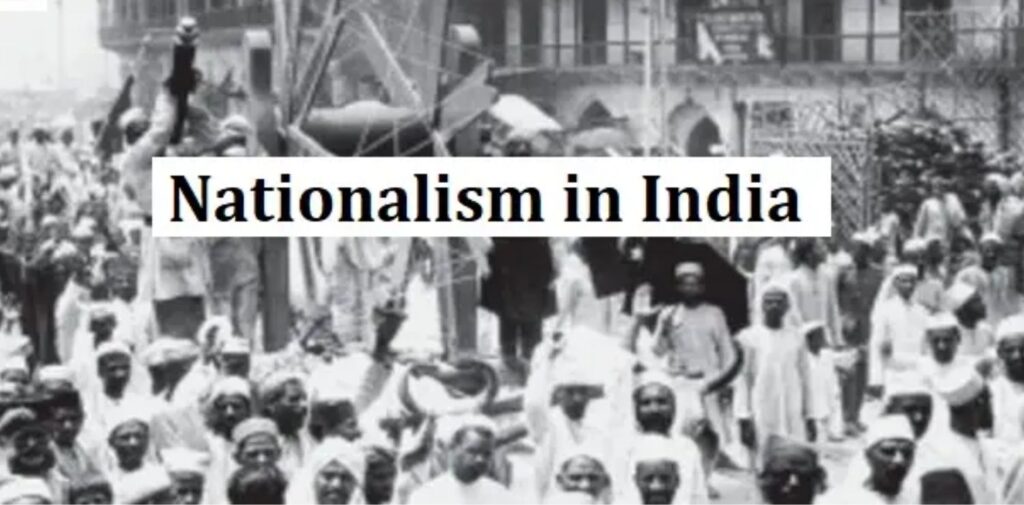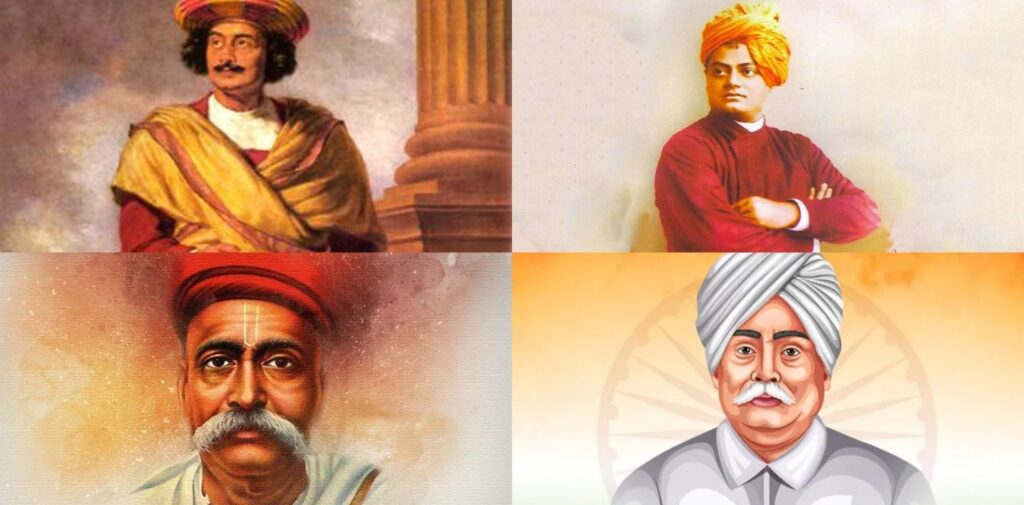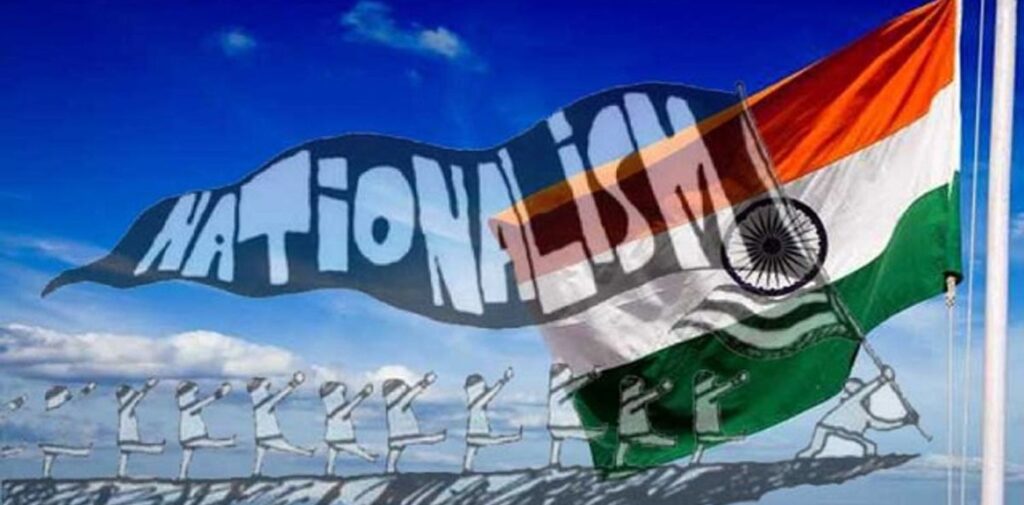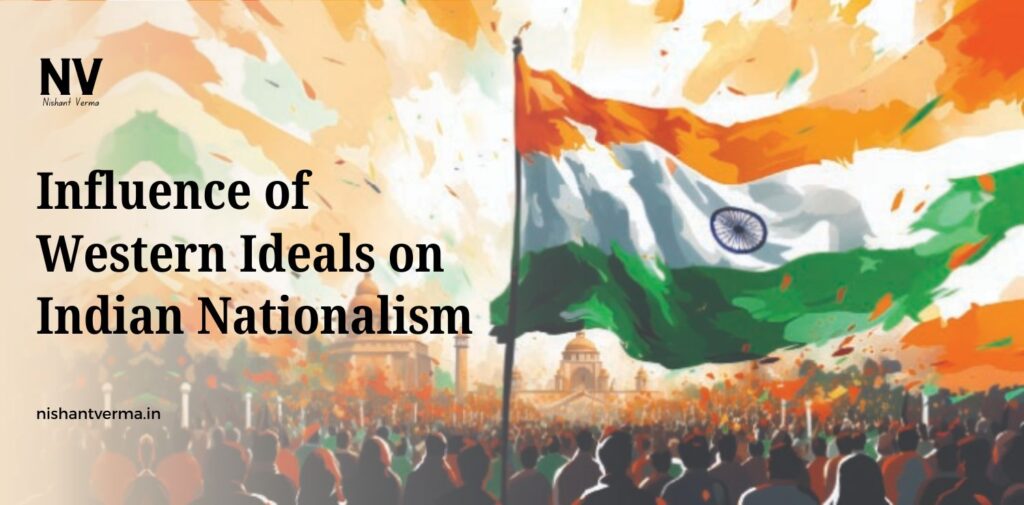The Indian Nationalist Movement, which ultimately led to India’s independence from British rule in 1947, was influenced by a wide range of factors, both internal and external. One of the most significant influences was the introduction of Western ideals, which shaped the way Indians viewed themselves and their colonial rulers. Western ideas of liberty, equality, fraternity, democracy, and nationalism resonated with many Indian thinkers, leaders, and revolutionaries, inspiring them to seek independence from British colonial domination.
In this article, we will explore how Western ideals played a crucial role in shaping Indian nationalism, the way these ideas were absorbed and adapted in the Indian context, and the key figures who were instrumental in this transformation.
Western Ideals and Their Introduction to India
Western ideas, especially those arising from the European Enlightenment and the French and American revolutions, emphasized individual rights, democracy, and the value of self-governance. These ideas were introduced to India mainly through British education, literature, and the spread of global political movements. The Indian elites, who had access to Western education through the British colonial system, began to engage with these ideas, and many of them found them compelling in their pursuit of political change.
Key Western ideals that had a significant impact on Indian nationalism include:
- Democracy and Self-Rule: The concepts of democracy, popular sovereignty, and the right to self-rule were highly influential. Ideas from the American Revolution (1776) and the French Revolution (1789), which focused on the rights of individuals to participate in governance and to be free from tyranny, inspired many Indians to question the legitimacy of British rule.
- Equality and Social Justice: The ideas of equality before the law and the abolition of privileges for the aristocracy or ruling classes also made their way to India. The Western ideal of equality helped fuel the push for social reform and greater rights for marginalized communities within India, including women and lower castes.
- Nationalism: Western nationalism, which advocated for the unity and independence of a people with shared cultural, historical, or linguistic bonds, resonated strongly with Indian nationalists. It gave them a framework for thinking about a united India, independent of foreign domination.

The Influence of Western Thought on Indian Thinkers and Reformers
The exposure to Western education and political ideas led to the rise of many Indian thinkers and reformers who were instrumental in reshaping Indian society and politics. These figures played a pivotal role in blending Western ideals with Indian traditions to form a unique vision of nationalism.
1. Raja Ram Mohan Roy (1772-1833)
Raja Ram Mohan Roy, often considered the father of the Indian Renaissance, was one of the first to actively engage with Western ideas and try to introduce them to India. He was deeply influenced by Enlightenment ideas, particularly those about the equality of all individuals, religious tolerance, and social reform.
Rammohan Roy was a strong advocate for the abolition of the practice of Sati (the burning of widows), which was prevalent in some parts of India at the time. His efforts to promote rationality, scientific thinking, and modern education drew heavily on Western ideals of progress and equality. He also established the Brahmo Samaj, an organization aimed at reforming Indian society along modern and progressive lines.
2. Swami Vivekananda (1863-1902)
Swami Vivekananda was another influential Indian thinker who combined Western ideals with Indian spirituality. He believed that the ideals of freedom, equality, and fraternity found in Western thought could be harmoniously integrated with India’s rich spiritual heritage.
Vivekananda emphasized the importance of self-reliance and national strength. His famous speech at the Parliament of Religions in Chicago in 1893 put India on the global stage and showcased the country’s capacity to contribute to the modern world while preserving its spiritual values. He stressed that India should embrace modern science and education while also maintaining its cultural identity, thus blending Western modernity with Indian traditions.

3. Bal Gangadhar Tilak (1856-1920)
Bal Gangadhar Tilak was a prominent nationalist leader who advocated for self-rule for India. He was one of the first to adopt the idea of nationalism, drawing inspiration from Western movements but combining them with India’s own cultural and religious identity. Tilak’s famous slogan “Swaraj is my birthright, and I will have it” encapsulated his belief in self-rule, which was rooted in both Western and Indian concepts of freedom and autonomy.
Tilak also believed in the importance of self-reliance and economic independence, which led him to promote indigenous industries and oppose the British economic exploitation of India. His calls for self-rule were strongly influenced by Western ideas of national sovereignty and the rights of nations to determine their own future.
4. Lala Lajpat Rai (1865-1928)
Lala Lajpat Rai, another key figure in the Indian nationalist movement, was inspired by Western ideals of liberty and self-governance. He was a strong advocate for the rights of Indians and played a significant role in the establishment of various organizations like the Punjab National Bank and the Hindu Reform Movement.
Rai believed in the need to modernize India by adopting Western scientific knowledge and political thought while simultaneously preserving its cultural heritage. He was also a strong critic of British imperialism and believed that the British would never voluntarily give up control over India, thus calling for active resistance and self-reliance.
Western Political Ideals and Their Role in Indian Nationalism
The influence of Western political thought on Indian nationalism was profound and shaped the way Indian leaders approached the struggle for independence. Some of the key ways in which Western ideals influenced the Indian nationalist movement include:
1. The Demand for Self-Rule (Swaraj)
The idea of self-rule, or Swaraj, became central to the Indian nationalist movement. The concept of a nation being governed by its own people, rather than being ruled by a foreign power, was deeply inspired by Western ideas of democracy. The French Revolution’s ideals of liberty, equality, and fraternity had a significant influence on Indian leaders like Gandhi and Nehru, who demanded the right to govern India independently.
2. The Concept of Equality and Social Justice
Western ideas about equality and social justice played a major role in India’s social reform movements. The abolition of untouchability, caste-based discrimination, and the fight for women’s rights were all inspired by the Western ideals of equality before the law and social justice. Figures like B.R. Ambedkar, who led the movement for the rights of Dalits (formerly known as untouchables), were greatly influenced by the Western ideas of individual rights and equality, particularly those enshrined in the American Constitution and the French Declaration of the Rights of Man.

3. The Education
Western ideals placed great emphasis on education as a means of social change. In India, the spread of Western-style education played a significant role in shaping the minds of future leaders. Indian reformers and nationalists recognized the importance of education in empowering the population and preparing them to challenge British rule. Leaders like Gopal Krishna Gokhale and Sir Syed Ahmed Khan promoted Western-style education to bring about social and political change.
4. Nationalism and the Sense of a Unified Nation
Western ideas of nationalism, which emphasized the unity of people with shared cultural, linguistic, and historical ties, inspired Indian nationalists to think of India as a unified nation. This was crucial in creating a sense of national identity among the diverse groups in India. Indian thinkers and leaders began to see the British as an external colonial power that had no right to rule over India, thus fostering the demand for independence.
Conclusion: Influence of Western Ideals
The influence of Western ideals on Indian nationalism was profound and helped shape the course of India’s struggle for independence. The ideas of democracy, equality, liberty, and nationalism that came from the West provided a framework for Indian thinkers and leaders to critique British rule and demand self-governance. While Western ideals were adapted and reinterpreted to suit India’s unique cultural and social context, they were central to the development of Indian nationalism.
Figures like Raja Ram Mohan Roy, Swami Vivekananda, Bal Gangadhar Tilak, and others integrated these Western ideas with traditional Indian values to create a vision of India that was modern, self-reliant, and free from colonial domination. Ultimately, these ideas contributed to the rise of a unified nationalist movement that led to India’s independence in 1947. Thus, the influence of Western ideals not only shaped the Indian National Movement but also played a crucial role in the formation of modern India.




